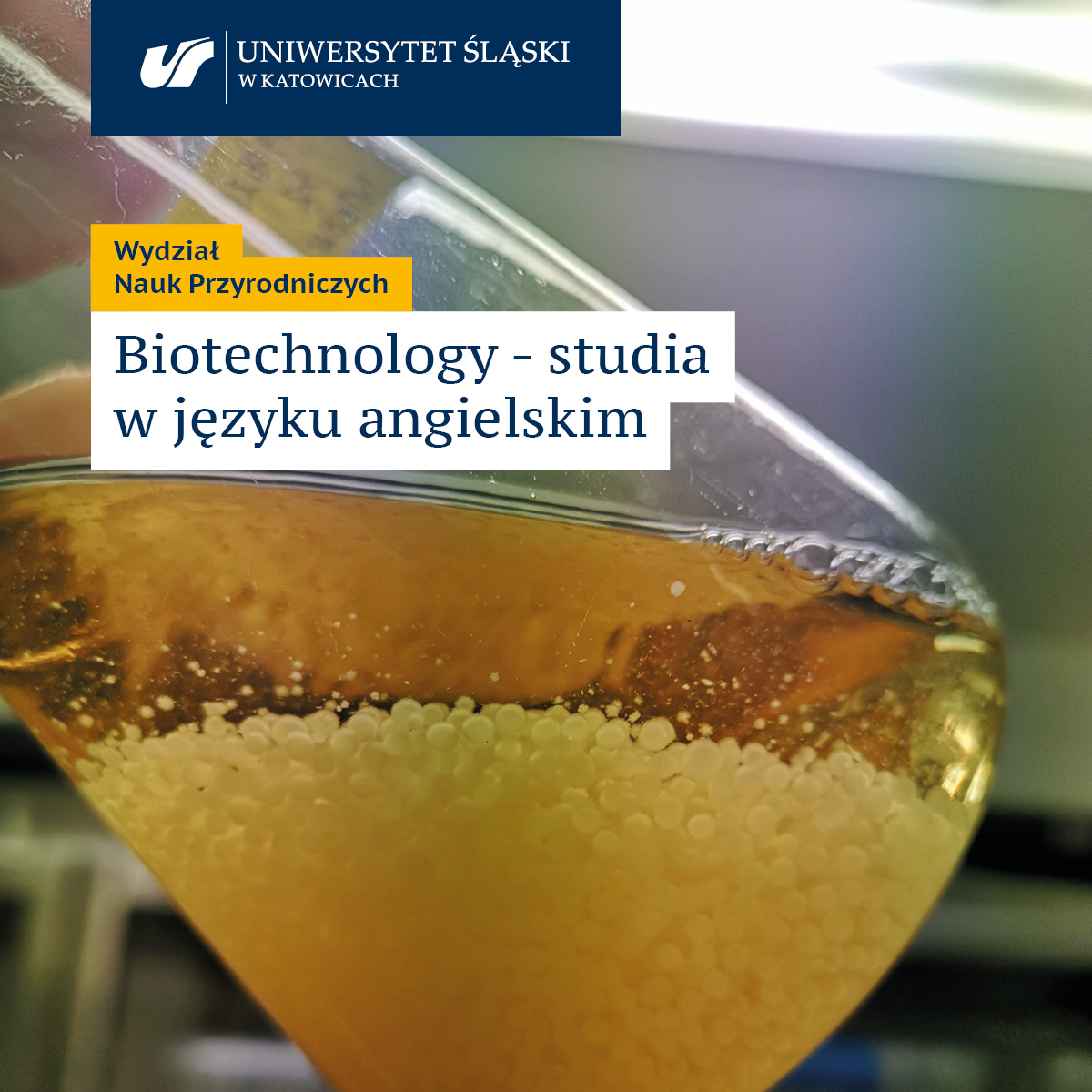Biotechnology – full-time, second-cycle studies
Biotechnology - full-time, second-cycle studies
Biotechnologia (studia w języku angielskim), stacjonarne, drugiego stopnia – IRK (us.edu.pl)

The course is conducted in full-time mode. Second-cycle studies last 2 years (4 semesters).
The following will be admitted to the studies on the basis of the admission procedure within the limit of places persons who have a diploma of graduation with the title of bachelor, engineer, master or equivalent (i.e. recognised with the Polish diploma in the case of graduating abroad), obtained in the field of biology, biotechnology, environmental protection or related disciplines.
In the case of graduates of majors other than biotechnology, the decision to admission procedure is made by an examination committee on the basis of an analysis of the curriculum completed studies and the learning outcomes achieved.
The qualification for studies is a two-stage process.
Stage I:
Submission to the Faculty Recruitment Committee (WKR) of a document certifying knowledge of B2 level in accordance with the Common European Framework of Reference for Languages.
In the absence of documents certifying knowledge of English at a level of at least B2 or higher, the applicant’s language competencies will be tested at an interview.
The interview is scored: from 0 to 20 points. A positive result from the interview is a minimum score of 10 points. A score lower than 10 points and absence from the interview will disqualify the candidate from the entire selection procedure.
Stage II:
Candidates admitted to stage II will be qualified for studies on the basis of the sum of the grade on the diploma and the average grade from the studies (according to the place on the ranking list).
A candidate for studies is obliged to submit an appropriate medical certificate confirming that there are no health contraindications to undertaking studies in this field.
| opłata rekrutacyjna | 85 złotych |
| Opłata semestralna dla Polaków i cudzoziemców uprawnionych do kształcenia na studiach stacjonarnych w języku polskim bez ponoszenia opłat za studia. |
Brak opłat semestralnych |
| Opłata semestralna dla cudzoziemców aplikujących na studia na zasadach odpłatności |
zasady i terminy wnoszenia opłat, numer konta
– więcej informacji na stronie |
Plant Biotechnology
The graduate of this specialisation receives sound and state-of-the-art knowledge of the molecular basis of biotechnological processes supporting plant production methods for the needs of modern agriculture and other industries (e.g. food, processing and pharmaceutical). The practical, specialised skills of the graduate, underpinned by the necessary theoretical knowledge, relate to learning how to operate the advanced apparatus of a biotechnology laboratory and the basic and advanced techniques used in plant biotechnology. The graduate of the described specialisation has the knowledge and practical skills to take up employment in the modern agriculture sector.
Environmental Biotechnology
The graduate of this specialisation has the skills to apply the latest biotechnological techniques and tools in learning and shaping biotechnological processes in various environments. As a result, he/she is ready to start working in institutions applying and implementing modern technologies based on using plants and microorganisms and the enzymes they produce. The skills acquired in the course of studies in working with specialised research apparatus will enable him/her to be employed in environmental analytical and diagnostic laboratories, research and development institutions, institutions related to animal husbandry, industries related to biotechnological environmental cleaning, waste treatment according to the assumptions of the circular economy and the food, processing or pharmaceutical industry.
The acquired knowledge, skills and competencies enable a Biotechnology graduate to undertake work, among others, in:
– scientific and research units
– research, control and diagnostic laboratories
– the biotechnology industry
– pharmaceutical, food, and agricultural industries (production, distribution, control)
– health care institutions
– animal breeding institutions
– plant breeding stations
– sewage and land treatment plants
– solid waste treatment centres
– biotechnology process design units
– authorities whose activities are related to environmental biotechnology, molecular diagnostics, wastewater treatment, solid waste treatment, bioremediation of land, modern plant breeding, production, control of medicines, foodstuffs, rational use, protection and management of natural resources.
Classes are conducted in Katowice in buildings at 9 Bankowa Street; 28 Jagiellońska Street.





